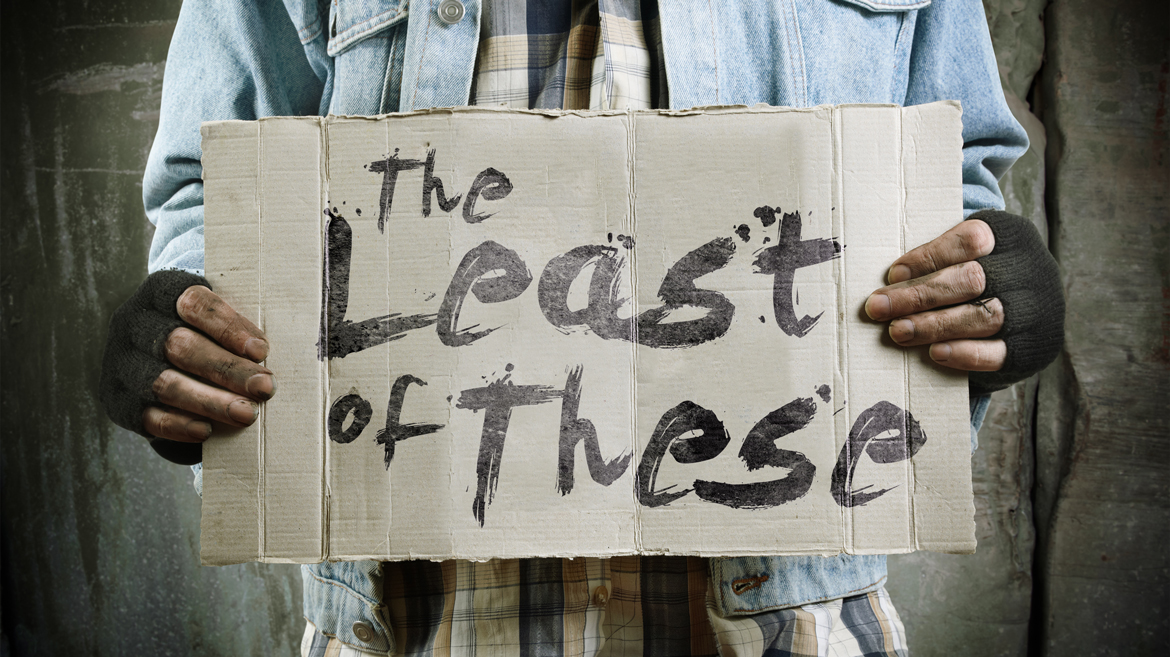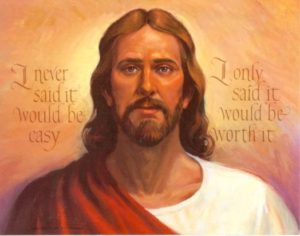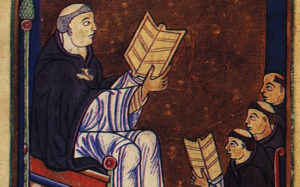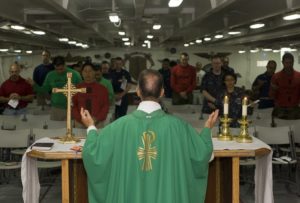
The service of obedience is to be shown to all, not just the abbot, for by this road of obedience they shall travel to find God.
Where is authority and obedience placed and how is it used?
Let prefix this post with an acknowledgement: I will be quoting Thomas Merton a lot during this one!
I have a personal struggle with authority and obedience which is deeply woven into my personality and history. Firstly, I am a born and raised Roman Catholic which has undoubtedly influenced me for good and ill in equal measure. I cannot and will not ever shake that influence from me, I can only learn to embrace the good and ask God’s mercy and grace to redeem the ill. Secondly, I am a millennial/Generation Y, my older siblings are the cynical generation X and they have shaped me as well as my peers who, like me have been parented by baby-boomers. All of that may sound like a load of sociological mumbo jumbo but the key point is I’m a product of my culture. Generation Y is also known as Generation Me, for we are, on the whole, a narcissistic bunch obsessed with selfies due to a great deal of pampering by our parents who were the recipients of Thatcher’s ‘booming economy’! These two parts of my social makeup would be enough to create a paradox around the issue of authority but there’s more specific personality traits that create a confusing cocktail of issues for me. (There’s my Generation Y traits coming out; a desperate need to be unique and noticed. Ironic!) In Myers Briggs personality test I am an INTJ
Blindly following precedents and rules without understanding them is distasteful to INTJs, and they disdain even more authority figures who blindly uphold those laws and rules without understanding their intent. Anyone who prefers the status quo for its own sake, or who values stability and safety over self-determination, is likely to clash with INTJ personality types. Whether it’s the law of the land or simple social convention, this aversion applies equally, often making life more difficult than it needs to be.(“INTJ Strengths and Weakneses”, 16 Personalities, April 23 2016, https://www.16personalities.com/intj-strengths-and-weaknesses)
I have a deepening sense of vocation to some form of monastic life. I am a self selected Anglican. I am artistic by temperament and, until ordination, by profession. All of this makes for some paradox inducing internal struggle for me but… it’s what makes me interesting!
I appreciate authority. I desire authority. I know the necessity for authority and even in a democratic country authority is not only allowed it is more needed than ever. Our relationship with authority, as a culture, is interesting to me. After it’s abuses by so many in the 20th century we have allowed the pendulum of social opinion to swing completely in the opposite direction. As my older siblings in Generation X have taken power (often in protesting movements and social activism) a large dose of cynicism towards authority and the status quo has become prevalent too. Figures of authority are routinely mocked and publicly shamed as satire has became increasingly popular so that now most comedians will have some form of pedestal kicking in their acts. I am not suggesting this is bad or unnecessary; I’m just noting it as interesting.
Thomas Merton (here it comes!) wrote to a Marie Byles, a scholar in Japanese religions, on January 9 1967,
You ask about the Catholic idea of holy obedience. What you are really interested in is evidently the ancient ascetic idea of obedience which goes back to the Gospels, the Sermon on the Mount, and so on, is exemplified by the saints, and is analogous to the perfect obedience, docility, and so forth found in other religious ideals. The idea is fundamentally the same: to become free from the need to assert one’s ego, to be liberated from the desire to dominate others, to renounce selfish demands, and so on. Ultimately the idea is that if you renounce your own will you will be guided directly by God and moved by Him in everything… The real purpose of obedience is to obey God and give one’s will to Him. This idea of obedience is somewhat ambiguous in the later legalistic context that it got into, when the religious Orders got highly organized and became big impersonal structures run by bureaucracies. The ascetic idea was pressed into the service of a different kind of ideal, and “blind obedience” was stressed as an ideal since it meant the subject simply submitted to authority and became a cog in a machine. (Thomas Merton, Thomas Merton: a life in letters (New York: Harper One, 2008) p. 191)
Merton draws out the first issue with obedience and authority and that is: where it is placed.
St Benedict’s original emphasis of obedience in his Rule stems from the expectation that within the monastic community there are personal relationships; monks were known to each other. An abbot knew the monks, personally and intimately. This relationship can’t always have been comfortable for either party particularly in issues of obedience. The abbot would have come from the community and could have been, at one time, a peer of the monks he now found himself in authority over. Within the intimacy of this fellowship of faith and discipleship, obedience is encouraged for it’s original purpose: to practice submission of our own will to God. I acknowledge not just my own personal need to practice this submission but my whole culture to do so.
Obedience, unfortunately, has continued to be associated with big, impersonal institutions and so is baulked at by many in Generation X and younger. Since the First World War and the abuses of the ruling classes that forced the population to fight increasingly failing battles on their behalf became apparent, cultural acceptance of authority began to erode. Throughout the last century, with the rise of fascism, communism, capitalism and many other philosophical and political ideals, humanity has developed a wariness to power and authority. Institutions have one by one shown themselves to be corrupted, or at least corruptible, and trust has been lost (the Church, the police, politicians, government processes, schools). This has been done to such an extent that we are now numbed to scandal and, strangely, we now see political elite and celebrities who are seemingly immune to such challenge.
To focus the issue a little more let me explore authority within the Church of England. I, as an ordained minister, have made an oath of canonical obedience,
I, A B, do swear by Almighty God that I will pay true and canonical obedience to the Lord Bishop of C and his successors in all things lawful and honest: So help me God. (Canon C14, Canons of the Church of England 7th Edition: Full Edition with First Supplement (London, church House Publishing, 2015)
In my case I have sworn obedience to the Archbishop of York Dr John Sentamu which has, on occasions, been put to the test. There have been decisions that the Archbishop has made which have affected me directly and which I have not agreed with. I have accepted those decisions as an act of obedience to him. This acceptance has not been easy at times as I struggle to obey authority solely because some person of status tells me to and particularly when I don’t believe them to possess all the necessary information of understanding, but I obeyed. My struggle is particularly painful when I am asked to obey decisions that have been made without any form of dialogue or relationship. Merton goes on,
As long as the notion of obedience is implicated in an impersonal power system it will be corrupted by the very things it is supposed to liberate us from- worldliness, selfishness, ambition, and so on… (Thomas Merton, Thomas Merton: a life in letters (New York: Harper One, 2008) p. 192)
That is not purely to say that just the authority figure, whoever that might be, is corrupted by those things but those in obedience under them also. For the vow of obedience to be renewed and reformed for both parties involved I suggest we ensure it is placed back in the soil of long-term, trusting relationship. The alternative is to either blindly allow it to continue as it is and to be burdened by the struggle or to leave the system altogether (as many who have taken the oath of canonical obedience are doing.)
Thomas Merton, in a letter to a Wilbur H. Ferry on January 19 1967, makes the following heartfelt observation,
Authority has simply been abused too long in the Catholic Church and for many people it just becomes utterly stupid and intolerable to have to put up with the kind of jackassing around that is imposed in God’s name. It is an insult to God Himself and in the end it can only discredit all idea of authority and obedience. There comes a point where they simply forfeit the right to be listened to. On the other hand… If everyone with any sense just pulls out, then that leaves the curial boys in full command of the field with the assurance that they are martyrs to justice or something. the real problem remains the reform of the Church people who remain inside. And if there can only be a little agreement on a more reasonable and free approach, something can be done. (Thomas Merton, Thomas Merton: a life in letters (New York: Harper One, 2008) p. 322)
Many have asked me why I, as a pioneer minister of sorts and as a creative artist, not only follow the rules but promote the need to stay true to them. It is the key paradox that makes me, me; how does it balance?
I have spoken before about an important moment in my life when I was asked by God to make a decision: was I going to be a revolutionary or a reformer? A revolutionary, in this instance, is one who seeks to overthrow the current system in power and replace it with something else. This revolutionary wants to destroy the status quo which is , in their mind, no longer fit for purpose, in order to create the new workable model. The reformer, on the other hand, is the one who seeks to take the treasures of the old and salvage them to allow the broken parts to either be ‘fixed’ or recycled or thrown out. The job of the reformer, in contrast to the revolutionary, is a long term systematic but thorough process. I made a promise to God some eight years ago to be a reformer and not a revolutionary.
Most pioneer ministers and those involved in the Fresh Expressions movement are revolutionaries. They are tired of the status quo failing, in their eyes, in the mission of God. The Church of England is joke and needs to be radically changed and that change is going to be made from a grassroots movements akin to the rise of Jeremy Corbyn, Donald Trump, Bernie Sanders and UKIP (this is not about motivation but solely about approach.) I have promised my God that I’d commit to participate in dialogue with the tradition because I still believe God has built his Church and he has not forsaken it yet. I believe that the Church is the hope of the nation and that God is still in it working through it. Fresh Expressions of church must, in my mind grow out from and remain united to the Church of God.
The Reformation was, in my mind, an unfortunate but necessary moment in Church history. It was unfortunate because it has birthed, out of division, a divisive movement. If you sow in division you reap in division. This has meant that preference has often replaced the deeply held convictions of the reformers and we have the situation where there are so many independent churches. These church congregations are not, in themselves a problem, many are doing wonderful, anointed work and I rejoice with them in the promotion of the life of faith and mission but the ecumenical movement, despite our best intentions of being united, is not full unity. What was begun at the Reformation has created this issue.
It is from this place of commitment to change the system from within that I speak. I don’t believe in complaining about something and not learning why it is as it is and how it or I can be changed to solve the problem. It is in this reformation mindset that I struggle to balance my obedience to authority and work to discern how God is birthing the new things in and through his Church. It is in all of this that I am encouraged by Merton’s letter to Daniel Berrigan, a Jesuit and one of the founders of the Catholic Peace Fellowship,
While in fact there are a lot of Superiors who think themselves infallible, and are absolutely incapable of understanding what it means to really find out what their subjects need and desire (they consult only yes-men or people who have made the grade by never rocking any boats), there is a new bunch coming up that sincerely wants to help change things, but obviously can’t do everything they would like to do either. And then there are the good Joes who want to go along wherever the Church seems to be going even if they don’t really understand what it is all about. If all these are treated as if they were purely and simply reactionary tyrants, then there will be a real mess for sure… The moment of truth will come when you will have to resist the arbitrary and reactionary use of authority in order to save the real concept of authority and obedience, in the line of renewal. This will take charismatic grace. And it is not easy to know when one is acting “charismatically” when one is surrounded with a great deal of popular support on one side and nonsensical opposition on the other… In either case let us work for the Church and for people, not for ideas and programs. (Thomas Merton, Thomas Merton: a life in letters (New York: Harper One, 2008) p. 272)
Merton draws out here the other issue with authority and obedience and that is: how is it used.
The pain of authority comes when it is, as Merton calls it, “arbitrary and reactionary”. How many of us have been on the receiving end of this approach to power? Often authority is used like this when it lacks the environment of relationship but it can still manifest itself like this even when you are within long term, trusting relationships. Merton knew this personally with his own abbot at Gethsemani where he lived.
The letters and journals of Thomas Merton are full of his personal struggles with abbot James Fox who continually refused Merton the opportunity to become a hermit. these occasions are so numerous and so gradual it is hard to find just one that will sum up the pain he felt as he wrestled with obedience to an authority he no longer respected.
I know he is my Abbot, but I am very much afraid that I have never honestly been able to deal with him as with a “spiritual father” and it would be impossible for me to do so sincerely. (May 11, 1965, Thomas Merton to Jean Leclercq, ‘Survival or Prophecy?: The letters of Thomas Merton and Jean Leclercq (New York: Farrar, Straus and Giroux, 2002) p.128)
Just two years earlier, Merton expressed, in his journal, his approach to obedience to an authority he did not respect.
In consequence my attitude toward the monastery changes. They have need of me and I have need of them. As if without this obedience, and charity, my life would lack sense. It is an existential situation which god has willed for me, and it is part of His Providence – it is not to be questioned, no matter how difficult it may be. I must obey God, and this reaches out into everything… In this new condition my attitude toward the abbot is changing. Of course it is obvious that my complaints and discontent have been absurd. Though I can perhaps back them up with plausible arguments, they have no real meaning, they don’t make sense. He is what he is, and he means well, and in fact does well. He is the superior destined for me in God’s Providence, and it is absurd for me to complain. No harm will ever come to me through him – it cannot. How could I have thought otherwise?(January 15, 1963, Thomas Merton, Turning Toward the World: the journals of Thomas Merton volume four, 1960-1963 (New York: HarperSanFrancisco, 1997) p. 288-289)
Esther de Waal suggests,
…obedience is a gift rather than a matter of duty. It is something which the good monk gives with gracious charity to his brother… Obedience depends on listening so totally and openly to the other that through them we discern the face, the voice of Christ himself. (Esther de Waal, A Life Giving Way: a commentary on the Rule of St Benedict (London: Continuum, 1995) p. 208)
Obedience must be a gift and should be lived not out of duty but love. This becomes painful when authority is wielded over you and obedience demanded from you rather than inspired in you. It is a delicate balance that Merton lived and that we all, in some way, must navigate. Obedience, like love, must begin as a practice, a choice and through this will grow into a habit and a virtue.
The service of obedience is to be shown to all, not just the abbot, for by this road of obedience they shall travel to find God.
Philip Lawrence, OSB and abbot of Christ in the Desert, writes,
Obedience is valuable in our lives because we show one another what it means to serve and love one another. Even the abbot has to obey the brethren! (Philip Lawrence, “Chapter 71: Mutual Obedience”, Benedictine Abbey of Christ in the Desert, April 23 2016, https://christdesert.org/prayer/rule-of-st-benedict/chapter-71-mutual-obedience/)
Obedience is to be done in love and as a service and it is expected, although not explicit in the Rule, reciprocal. The person in authority over another is not to laud it over their subjects but to be obedient also. It is in this mutual obedience that authority can be wielded.
Obedience then should be preceded by a deep listening from both parties. If it is rooted in relationship then authority will be exercised with love and obedience given as a gift.
Reflection
This chapter challenges me, like the rest of the Rule, but particularly at this moment in my ministry. This current season in my life is painful like a continual dull thud causing me discomfort. I find myself blindside by a sear of the pain which I must ride out until it subsides. Through it all I choose obedience and to re-commit to following the path laid out for me by God, to see through my potentially erroneous beliefs or opinions and to say of my superior,
He is what he is, and he means well, and in fact does well. He is the superior destined for me in God’s Providence, and it is absurd for me to complain. No harm will ever come to me through him – it cannot. How could I have thought otherwise?
Having said that, I am also aware that authority and obedience is not currently rooted in relationship and it is in this way that it and I must seek to change. I must be careful though,
The moment of truth will come when you will have to resist the arbitrary and reactionary use of authority in order to save the real concept of authority and obedience, in the line of renewal. This will take charismatic grace. And it is not easy to know when one is acting “charismatically” when one is surrounded with a great deal of popular support on one side and nonsensical opposition on the other… In either case let us work for the Church and for people, not for ideas and programs.
I was asked to visit the nacent new monastic community at St Lukes, Peckham, as part of my involvement in the development of the Society of the Holy Trinity. In our discussion (which can be found here) the painful and personal issue of obedience to authority was explored. I encourage you to listen to it and pray.
I appreciate that this post has been long so I want to sum up the salient point: I believe in the Church as an institution which can develop a transformation of character by practices such as obedience. If authority and obedience is rooted in relationship and a place of intimacy they can be amazing gifts one to another. Outside of relationship they are potentially deeply damaging weapons wielded over people. The change should not be to disown them and seek replacements but to renew and replace them into their proper place.
You are the God who makes extravagant promises.
We relish your great promises of fidelity and presence and solidarity,
and we exude in them.
Only to find out, always too late,
that your promise always comes in the midst of a hard, deep call to obedience.
You are the God who calls people like us,
and the long list of mothers and fathers before us,
who trusted the promise enough to keep the call.
So we give you thanks that you are a calling God,
who calls always to dangerous new places.
We pray enough of your grace and mercy among us
that we may be among those who believe your promises
enough to respond to your call.
We pray in the one who embodied your promise
and enacted your call, even Jesus. Amen.
(Walter Brueggemann, Awed to Heaven, Rooted in Earth: Prayers of Walter Brueggemann (Minneapolis:Augsburg Fortress, 2003) p. 90)
Come, Lord Jesus.





 If you watch the Star Wars prequels and witness the development of the relationship between Anakin Skywalker and Padme you will witness how Anakin’s desires and passions seem to be good. He loves Padme, they are meant to be together, it is destiny. The advice of the Jedi Masters is to resist and control those feelings that the love will ultimately destroy them (and the very democracy they are supposedly fighting for). Many challenge the Church’s ‘restrictions’ and ‘rules’ the very way that Anakin questions the Jedis. Obedience to an institution is alien to the humanist ideal and suddenly the Church becomes a place of oppression and control. A duality emerges between the human freedom and the social/political body of which the body must embrace the individual or be destroyed. What was it that led Anakin to the dark side? What are being asked to learn from his journey? How did Obi Wan Kenobi, Yoda and others try to advise and teach young Skywalker?
If you watch the Star Wars prequels and witness the development of the relationship between Anakin Skywalker and Padme you will witness how Anakin’s desires and passions seem to be good. He loves Padme, they are meant to be together, it is destiny. The advice of the Jedi Masters is to resist and control those feelings that the love will ultimately destroy them (and the very democracy they are supposedly fighting for). Many challenge the Church’s ‘restrictions’ and ‘rules’ the very way that Anakin questions the Jedis. Obedience to an institution is alien to the humanist ideal and suddenly the Church becomes a place of oppression and control. A duality emerges between the human freedom and the social/political body of which the body must embrace the individual or be destroyed. What was it that led Anakin to the dark side? What are being asked to learn from his journey? How did Obi Wan Kenobi, Yoda and others try to advise and teach young Skywalker? Again, in Star Wars, the failure of the Jedis to pastor Anakin through his doubts and mistakes was in their lack of transparency and honesty. It was seemingly more important to protect the Jedi Order than to love and invest in Anakin. Anakin became collateral in the bigger, cosmic battle going on. It seemed to Anakin that he was being used, manipulated and ignored and trust was not built enough to hold him and engage him. The admittance of difficulty, confusion and fear is a vulnerable but necessary part of building trust between people. The conservatives have not shown enough awareness of the pain of their own sin and mistakes. Confession and lament over our part in the causes of suffering is sadly lacking in the Church and this does great damage to the message of forgiveness and grace that is so clearly taught, in theory, in conservative circles.
Again, in Star Wars, the failure of the Jedis to pastor Anakin through his doubts and mistakes was in their lack of transparency and honesty. It was seemingly more important to protect the Jedi Order than to love and invest in Anakin. Anakin became collateral in the bigger, cosmic battle going on. It seemed to Anakin that he was being used, manipulated and ignored and trust was not built enough to hold him and engage him. The admittance of difficulty, confusion and fear is a vulnerable but necessary part of building trust between people. The conservatives have not shown enough awareness of the pain of their own sin and mistakes. Confession and lament over our part in the causes of suffering is sadly lacking in the Church and this does great damage to the message of forgiveness and grace that is so clearly taught, in theory, in conservative circles.

